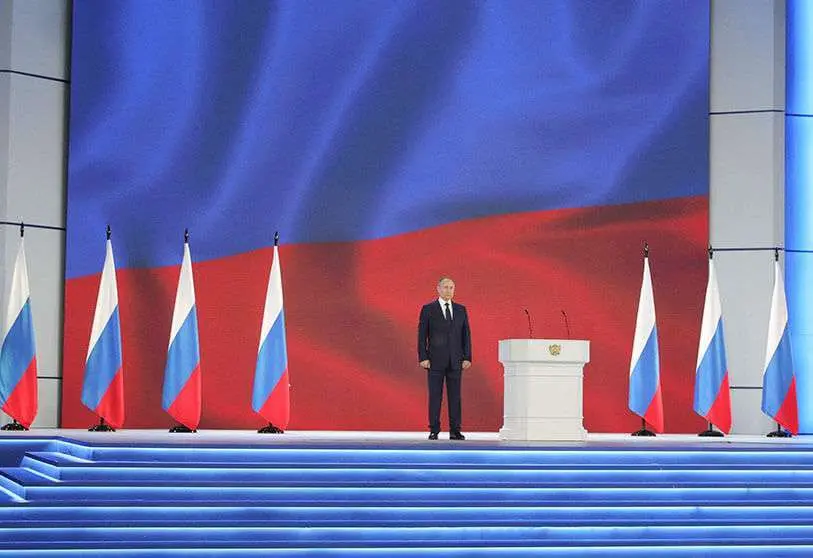Who created the monster?

Seventy-six years ago, on 2 September 1945, one of the most dramatic episodes of warfare in recent memory ended with the end of the Second World War; and if the First World War had been cruel and devastating, the war that Hitler started was to such an extent an inhuman butchery driven by a narrative - full of lies and hatred - to justify with such coldness the destruction of a human being.
It was a war waged by psychopaths who enjoyed the cruelty inflicted on a person regardless of whether it was a newborn baby or a grandfather.
The victors of that historic event believed that by building up a series of international and multilateral bodies, organisations, institutions, laws, agreements and treaties there would be a way to avoid another great conflagration, another new war on a disproportionate scale. That was also the purpose of the United Nations (UN), for which, by the way, little respect is paid today.
Peace, which is part of this international architecture, has suffered major stumbling blocks over the last eight decades, but it has never reached the level of alert, of imminent risk, of almost the point of no return to which we have fallen in Europe in recent days, with a particularly noticeable erosion. We in Europe have never even thought of discussing the mere possibility of experiencing a nuclear attack, of bringing out the monster after Pandora's box has been opened.
At this point, the question is, who created the monster? Who is to blame for the fact that an individual like Vladimir Putin has the world on tenterhooks trying to figure out whether his plans are those of Hitler in the last century?
Many things have gone wrong here: the mea culpa has to come first and foremost from the West, above all from the United States and its interventionist policies, financing disasters in various countries either to put in place or remove presidents as it pleases or to finance regimes, even if they violate the human rights of their subordinates.
Intervention in the Middle East by the United States has caused a humanitarian disaster, altered domestic and governmental policies to suit its own convenience, and even strived with a certain air of superiority to raise democracy and capitalism as the only possible banners.
The fall of the Berlin Wall and the dismantling of the USSR and the so-called Eastern Curtain gave the United States a victory in favour of precisely that pairing and left it reigning alone with a selfish and conditioning unilateralism in which it not infrequently disdained its own traditional European allies.
However, the watershed of 11 September 2001, with the terrible attacks on US soil that left thousands of civilians dead, changed international hyperbole forever: in fact, the now President of Russia, Vladimir Putin, warned President George W. Bush himself that his intelligence services had information of a potential attack on US soil. He called him on the day Ahmed Shah Massud was assassinated in Afghanistan and also spoke to Bush on the day of the attacks to point out - again - that Russia had nothing to do with it.
That "whistle-blow" earned Putin an invitation to Bush's ranch and while he worked hard to build a good relationship with him, in the end he did not achieve much of what he had in mind: repositioning Russia as an important global actor.
Nor did he make much headway in his relationship with Bill Clinton beyond renewing nuclear treaties; while in Barack Obama's eight years in office he practically entered a quagmire and after the rigged trick of holding a referendum to annex Crimea and Sevastopol, he was put on ice by the US and Russia was no longer invited to G7 summits. Obama always treated Putin with contempt, giving him the status of an autocrat, and even then Joe Biden, as Vice-President, knew his profile well.
A profile that, on the other hand, seduced a Donald Trump, conceited but also self-conscious about his airs and graces, who was more concerned with governing by creating media coups such as his meeting with the North Korean dictator, Kim Jong-un, or the summit he held in Helsinki in 2018 with Putin, who also humiliated him by making him wait for more than an hour.
Who created the monster? The West created it with its arrogance to go in and destroy countries with its wars here and there and with its airs of democracy and capitalism which, it must be said, not everyone culturally shares. The European Union (EU) created it by believing that Europe ends at the Brandenburg Gate and looking down on others because "they are niggers" or "Chinese" or "Guiris" or "South Africans" or "Moors". And for not giving importance to what is happening, neither on one side, nor on the other: neither with their borders with Africa nor with the European backyard.
Not only have they spent many years despising Turkey's accession to the EU, they have also spent many years analysing whether or not Ukraine deserved to be part of the European club. Now they are going to accept it: it is overrun, screwed up, devastated, with people dying and at the mercy of Putin's claws.
It's more of a token membership, a way of washing their hands of it because this monster has been created by the US and the EU, with their blunders in their foreign relations; with their surly policies, with their individualism and their accommodating way of seeing things. And this is coming from a Europeanist, someone who believes in the EU as a network of peace and prosperity. Here we have failed and the monster has grown and seen the opportunity... now it wants to devour us.

